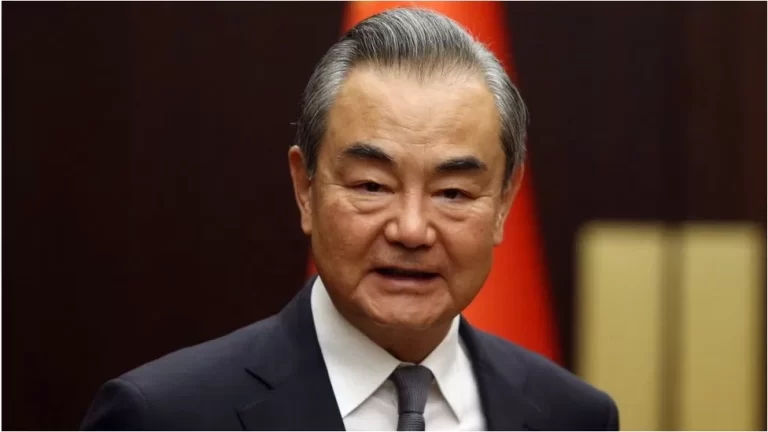China's top diplomat Wang Yi is visiting Russia for security talks, as Moscow seeks continued support for its war on Ukraine.
A close ally of Moscow, Beijing is accused of supporting Russia indirectly during the war, which it denies. Mr Wang's trip is thought to be paving the way for Vladimir Putin to make a landmark visit to Beijing soon.
Earlier this month Mr Putin said he expected to meet Chinese President Xi Jinping, but did not say when. He has not travelled abroad since the International Criminal Court issued an arrest warrant for him over war crimes in Ukraine.
It also comes after Mr Putin welcomed North Korea's Kim Jong Un in a meeting expected to yield an arms deal. China's foreign ministry said Mr Wang is in Russia for four days for “strategic security consultations”. Moscow said he would meet his Russian counterpart, foreign minister Sergei Lavrov, and the two would discuss “issues related to a settlement in Ukraine” and Asia-Pacific security.
It comes days after Mr Putin's highly controversial welcome of Mr Kim, which the US alleged was to discuss the selling of North Korean arms to Russia. Moscow is thought to be facing a shortage of weapons and ammunition.
Russia and North Korea said they talked about “military cooperation” and aid for Pyongyang's satellite programme. When asked about Mr Kim's trip last week, China's foreign ministry declined to comment saying it was “something between their two countries”.
But some analysts believe that any mutual North Korea-Russia support is happening with China's knowledge or even implicit consent, given Beijing's close ties with the other two countries.
Those relationships extend beyond socialist ideology and their shared distrust of the US and the West. Beijing has long been Pyongyang's economic lifeline through trade, and in the past year it has started becoming Moscow's as well through ramped-up purchases of Russian oil and gas.
“Whatever's happening with Russia and North Korea cannot be happening without China knowing about it… I don't think they would cooperate militarily without Beijing's approval,” said Alexander Korolev, an expert on China-Russia relations with the University of New South Wales in Australia.
China could even see North Korea as a useful proxy to help Russia in the Ukraine war, he added.
“Simply by greenlighting North Korea to have military cooperation with Russia, is a way to help Russia with very low reputational costs. It could blame North Korea's rogue regime [whose actions have] nothing to do with them. It would be a smart move, if this is the case.” he said.
Mr Wang's visit to Russia also comes a day after he met US national security adviser Jake Sullivan in Malta. Besides the US-China relationship, the two men had also discussed regional security and the Ukraine war, according to statements put out by the US and China.
While the US may be talking to China to put pressure on North Korea to stop any cooperation, it may be unlikely China would do this, said Mr Korolev. “If China wanted to play ball the American way, they had more than a year” to stop the war but they have not, he said.
China has been accused by the US of aiding Russia economically and supplying key technology since the war began. A US intelligence report released in July said Beijing is “pursuing a variety of economic support mechanisms for Russia that mitigate both the impact of Western sanctions and export controls”.
It cited China's increased purchases of Russian energy exports, the increased use of its currency in transactions with Russia, and the “probable” supply of dual technology – items which could be used for both civilian and military purposes such as drones – for use in Ukraine.
China has consistently denied such allegations and insists it maintains an objective position on the war. It has put out its own Ukraine peace plan, unveiled during a whirlwind of diplomacy undertaken by Mr Wang earlier this year when he last visited Moscow and met Mr Putin.
— CutC by bbc.com


